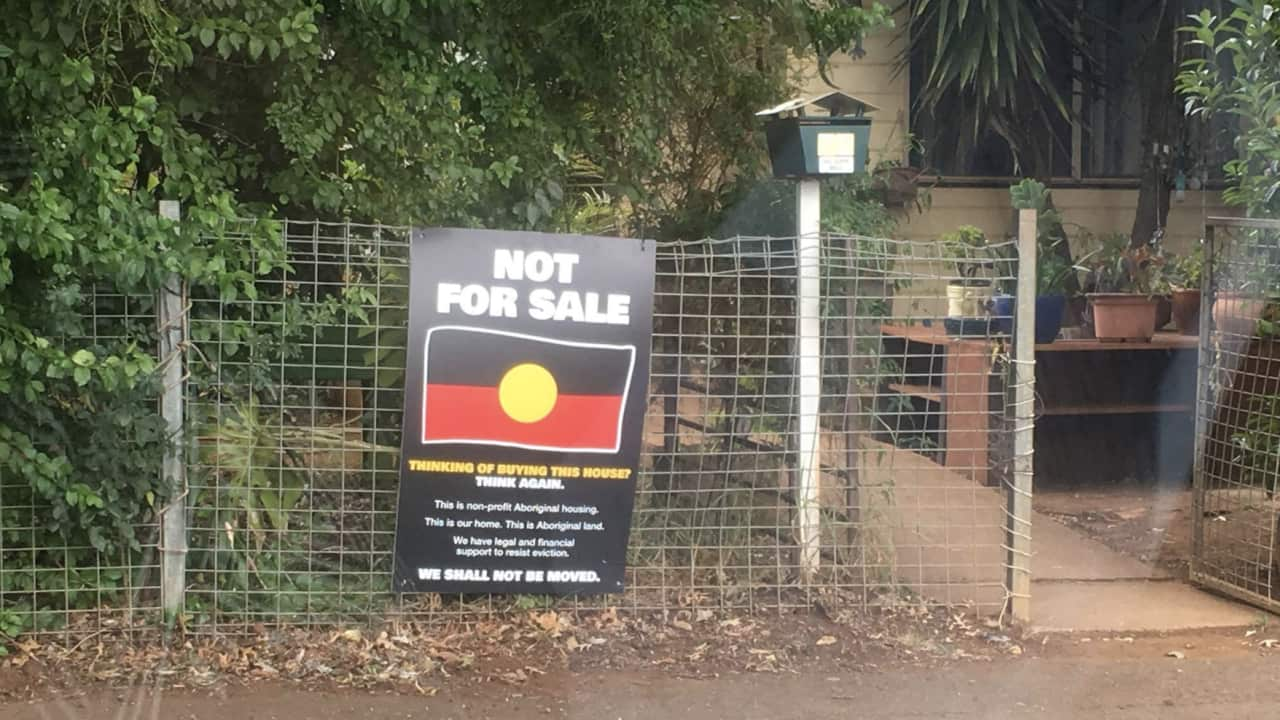A construction company was fined more than $400,000 last week for destroying a recognised sacred site while working on a quarry about 200km north of Roma in central Queensland between 2013 and 2016.
In a judgement handed down in November 2018, Magistrate Catherine Benson said the behaviour of Ostwald Construction Materials Pty Ltd amounted to "gross negligence" and fined the company $180,000.
Ms Benson also ordered the company to pay $250,000 to the Queensland Department of Aboriginal and Torres Strait Islander Partnerships (DATSIP) for restoration of the Bottletree Quarry site, but that was too little too late for the Karingbal people, one Elder recently told NITV News.
Uncle Charles Stapleton said no amount of money will ever be able to repair the destruction of the land and the hurt caused to his people, and now he wants to see the Aboriginal Cultural Heritage Act strengthened.
Before work on the quarry began, Mr Stapleton registered the Karingbal sacred site, which is a small pocket in a wider culturally significant area, as a Significant Aboriginal Area under the state’s Aboriginal Cultural Heritage Act.
But Ostwald Construction Materials cleared the quarry site, using Bulldozers to remove up to a foot of topsoil to create large "bund walls" around the perimeter of the site.
Numerous sacred Gumbi Gumbi trees were destroyed in the process, and countless cultural artefacts unearthed and displaced. Australian Heritage Specialists’ Ben Gall said the works "entirely destroyed the site".
Australian Heritage Specialists’ Ben Gall said the works "entirely destroyed the site".

The Bottletree quarry site. (Supplied).
“At the least, artefacts were taken out of context but many were harmed in the process too,” he said.
Mr Gall said Queensland’s Aboriginal Cultural Heritage Act sets out clear guidelines for companies to follow, and what happened at Bottletree Quarry should never be allowed to occur again.
“They really had no choice but to consult with the Karingbal people, but they didn’t,” he said.
Reforming the Act
Months after the court ordered Ostwald’s to pay for restoration fo the site, Mr Stapleton said there’s been no effort so far to rectify the damage.
“It’s still the way they left it, they haven’t done anything yet,” he said. “I think the word they’ve been using to describe it is ‘desecrated’.”
Mr Stapleton said he finds it hard to describe the hurt and the damage done to his land.
“They should have known better,” said Mr Stapleton. “Why bother registering a site if they’re going to destroy it anyway. I was taught not to walk on someone else’s country or speak on anyone else’s country. But these companies they just want money, so they ignore our traditional law. They don’t care as long as they can make money.”
Mr Stapleton said the cultural destruction at the Bottletree site is just one more example of a much wider problem.
“It seems like people can go in and do what they like. I want to know who makes these decisions and how it works so I know how to protect my land.”
“It was full of artefacts. There was big waterholes, middens, big camps. The old people camped up there often.” Mr Gall said Ostwald Construction Materials were able to proceed with the clearing without a Cultural Heritage Management Plan, nor did it seek a working relationship with the Karingbal people.
Mr Gall said Ostwald Construction Materials were able to proceed with the clearing without a Cultural Heritage Management Plan, nor did it seek a working relationship with the Karingbal people.

One of the artefacts found at the Bottletree quarry site. (Supplied)
“When the Karingbal found out what was happening they tried to get them to stop their work. They tried to get a stop work order from DATSIP," he said.
“DATSIP did not stop that work and that’s what led to this land being destroyed. The steps set out in the Act are simple to work through, there’s really no excuse to not follow them.
“It’s critical to reform the Aboriginal Cultural Heritage Act and the Native Title Act to stop seeing this kind of thing in Queensland.
“At the moment the Act relies on good people to do the right thing. Many do do the right thing and build a good working relationship with the local Aboriginal people, but it does allow people who don’t want to do the right thing to get away with it."
However, Mr Gall commended Queensland Deputy Premier, Jackie Trad, for her efforts to have the Aboriginal Cultural Heritage Act reformed.
Ms Trad has been reviewing the Cultural Heritage Duty of Care Guidelines contained in the Act, hoping to have them revised.
But Mr Stapleton said it’s all too late for his Country, though he hopes changing the Act will prevent other mob from having to go through what the Karingbal people have experienced.
“I want to see people listen when they’re told not to touch the land,” he said.
“We’re blackfellas, we don’t want to go to court and be treated like criminals, we want to sit on our country to talk about our land. Something has got to change.”












